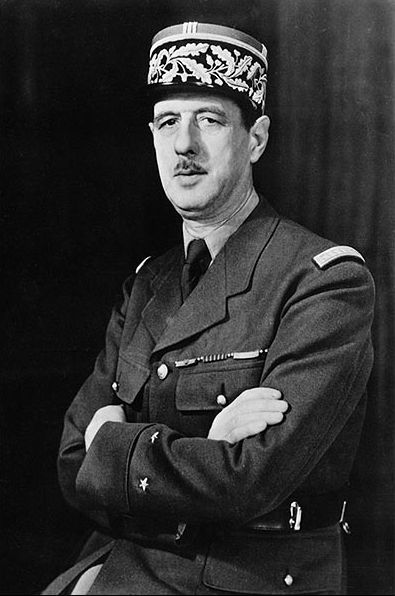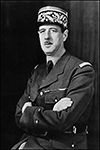Thoughts on the Peace of Potsdam
The War Illustrated, Volume 9, No. 214, Page 264, August 31, 1945.
The Berlin Conference of 1945 will long be remembered as one of the red letter events in world history; its importance outweighs that of the once celebrated Congress of Berlin (1878) as greatly as the mighty forces of this World War have surpassed the military and naval resources of what by comparison was a local affair. Our well-known contributor, HENRY BAERLEIN, who writes this article on the Conference, is a recognized authority on European politics, with intimate knowledge of the Balkans and Central European countries.
The first thing that is obvious about the decisions arrived at by the Big Three at Potsdam is that they contain the beginnings of a constructive programme, instead of limiting themselves, as was done for the most part at previous conferences of these Great Powers, to a programme of destruction. Not that the destruction, root and branch, of Nazism is now neglected; far from it. But for the first time the world is now given a positive vision of the Germany which is to emerge and survive, with freedom of political parties – certain democratic ones are indicated – and of trade unions, freedom of assembly and public discussion, freedom of Press and religion, with the re-creation, from the bottom, of freely elected authorities.
These various decisions are welcomed whole-heartedly and the Germans, apart from an irreconcilable minority, will themselves be glad enough to enjoy what the Nazi system utterly denied them. Democratic institutions have never had much of a chance in Germany. But the Germans are an intelligent people, and the plight in which their adherence to the Fuehrer principle has landed them may induce the majority to be very willing to give democracy a trial.
The Germans will recognize that the sanctions taken against them are inevitable; they will not sulk on account of them. Thus the Potsdam decisions as regards Germany are to be applauded. Likewise the replacement of the European Advisory Commission by the Council of five Foreign Ministers with a permanent secretariat in London is admirably adapted to simplify the task of creating machinery for carrying on the work of reconstruction in our sorely tried Continent. It is a great thing that a common policy towards Germany has at last been clearly proclaimed.
It will be noted that Britain and the United States have refrained from any official statement regarding the proposed frontiers of Poland in the west. This caution is not by any means due to a lack of generosity and a tenderness for Germany, but we and the Americans have wished to be assured that so wide an acquisition of territory as is envisaged will in fact increase Poland's strength and security. It is true that her birth-rate is higher than that of most other countries, but how will she be able to populate such extensive areas of East Prussia, Pomerania, Brandenburg and Silesia?
Of course, Poland's own previous lands have suffered vastly from the German invasion, and if they are left, as it were, fallow for a time in order to recover, then many of the people there would be able to seek other pastures, particularly if the Government will not merely allocate so many acres to a worthy citizen but will provide the necessary assistance for him to get the land into productivity.
Most people will admit that the decision to have the new Polish western frontier on the Oder-Niesse line is excellent – for the reason that the winding, pre-war frontier with Germany will thus be shortened to about 200 miles, while the frontier with Czechoslovakia, which is linked to Poland as a member of the eastern security pact, will be lengthened. Another advantage of the new frontier for Poland is that the industrial gains will give her economy a greater balance; hitherto she has been mainly agricultural, despite the fact that around Lodz and in upper Silesia she had a flourishing industry. The Poles are an adaptable people, and it must be the hope of all of us that they will make as much of a success of the new territories they will occupy as they did between the two wars of the port of Gdynia, which they wonderfully created out of a fishing village. It is all to the good, by the way, that the Allied Press is to enjoy full freedom to report upon developments in Poland before and after the prospective election.
France and the Potsdam Decisions
The whole future of Eastern Europe is alluded to in a somewhat vague fashion, while nothing is said of Turkey, the Straits or the Middle East. The claims of France to the west bank of the Rhine and in the Ruhr are passed over in silence – which certainly does not imply that the claims are allowed. As for the various matters on which nothing is said, one may fear that no agreement was reached between the Big Three. If that be so, then the Foreign Ministers may be able to tackle the job; and in the meantime it will be advisable to leave these topics in abeyance.
That her claims have not, as yet, been granted is one reason for the discontent felt in France with the Potsdam decisions. She was bitterly resentful at not being invited to take part in the proceedings herself, and it is possible to sympathize with her present frame of mind, one that causes General de Gaulle to provide her with more circuses than bread. It seems to have been settled that Russia is to have 56 per cent of all goods and services taken out of Germany; Britain and the United States each having 22 per cent. But Russia has undertaken to satisfy, or at any rate endow, Poland from her share; and Britain and America will probably not be niggardly in the claims of other Allies.
One Government wholly enraged against the Potsdam declarations is that of General Franco, for “they feel bound”, say the Big Three, “to make it clear that they would not favour any application for membership of the United Nations' Organization put forward by the present Spanish Government, which having been founded with the support of the Axis Powers does not, in view of its origins, its nature, its record and its close association with the aggressor States, possess the qualifications necessary to justify such membership.” Here, indeed, is plain speech.
This condemnation, says General Franco, is arbitrary and unjust; he ascribes it to the false atmosphere created by the libellous campaigns of exiled Reds and their accomplices abroad. To collaborate in the work of peace in which, by remaining neutral in two great wars, she made such a signal contribution. But the Spanish people are wondering if action of some sort will be taken against their country unless Franco yields to the storm of the Big Three. If their attitude causes him to hand over power to a Provisional Republican Government, which would at once hold elections, we would have further reason to applaud the work of the Big Three at Potsdam.
Index
Previous article
Russia Smashes In to End the War With Japan
Soviet Russia declared war on Japan on August 8, 1945, when Mr. Molotov, Russian Foreign Commissar, informed Mr. Sato, the Japanese Ambassador to Moscow, that the declaration would come into operation
Next article
Now It Can Be Told! - How Royal Marines Hacked a Base From Jungle
The dramatic story of another secret war port was revealed by the Admiralty in July 1945. It is the story of "Port T" – a naval base with full defences – hacked out of the jungle on Addu Atoll, a





